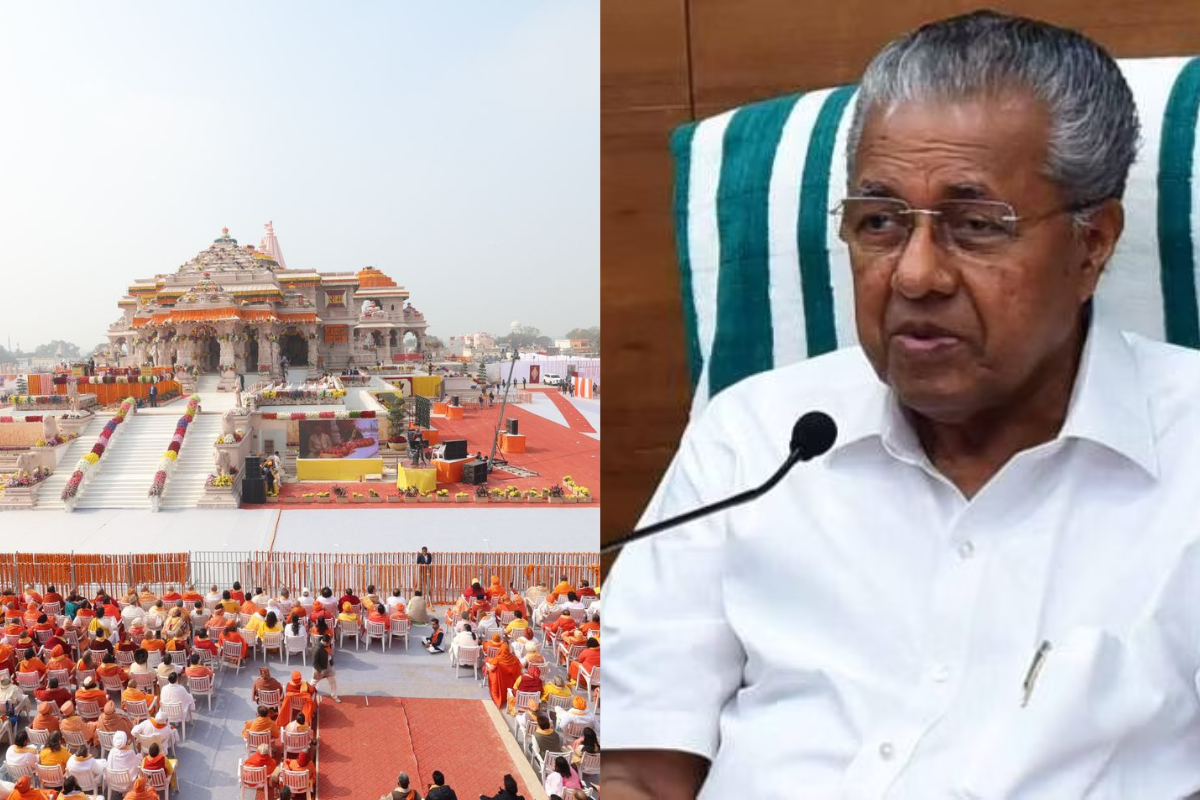THIRUVANANTHAPURAM: Kerala Chief Minister Pinarayi Vijayan had turned down the invitation to attend the Ayodhya temple consecration ceremony, held on Monday, citing a commitment to secular values embedded in the Indian Constitution. In a video message, CM Vijayan indirectly criticised the BJP-led central government, accusing them of turning the event into a religious ceremony and undermining the country’s secular ethos.
“Secularism is the soul of the democratic republic of India. It has been part of our identity as a nation right from the days of our national movement. Those belonging to different faiths and those who were not part of any religion had taken an active part in our freedom struggle. This nation belongs to all people and all sections of Indian society, in equal measure,” asserted Vijayan.
EXCLUSIVE| Indian lyricist and screenwriter Prasoon Joshi says he is extremely fortunate to witness #RamMandirPranPrathistha ceremony while speaking to The New Indian’s Executive Editor Rohan Dua.@rohanduaT02 @prasoonjoshi_#AyodhyaRamMandir #RamTemple pic.twitter.com/h76ak6DJGv
— The New Indian (@TheNewIndian_in) January 22, 2024
Vijayan highlighted the private nature of religion, underscoring the constitutional right for every person to freely profess, practice, and propagate their faith. While upholding this right, he stressed the importance of not favouring one religion over another or diminishing any religious community.
Referring to India’s first Prime Minister, Jawaharlal Nehru, Vijayan highlighted the concept of secularism as the separation of religion and state. He expressed concern over the thinning line between religion and state, noting a departure from historical caution against constitutional office bearers participating in religious events.
EXCLUSIVE| PM Modi beings with the rituals of #RamMandirPranPrathistha ceremony, which will take place till 12:55 pm, along with RSS chief Mohan Bhagwat.
They will step out of garb griha after 12:55 pm with priests. Till then, IAF will shower the temple with petals by choppers.… pic.twitter.com/eJ2p88lt1E
— The New Indian (@TheNewIndian_in) January 22, 2024
The CM further questioned the celebration of a religious place’s inauguration as a state event, expressing reservations about the changing dynamics that challenge the country’s secular fabric. Declining the invite, Vijayan urged fellow constitutional authorities to uphold the secular character of the Constitution by refraining from participating in events that could compromise the nation’s commitment to secularism.
Vijayan saw this moment as an opportunity to foster harmony and brotherhood among India’s diverse population, transcending religious, linguistic, and regional differences. He called for the promotion of scientific temper, humanism, and a spirit of inquiry and reform, envisioning India’s prosperity through these values. As the controversy over the Ayodhya temple inauguration continues, Vijayan’s decision takes a principled stand in defense of India’s secular ideals.










